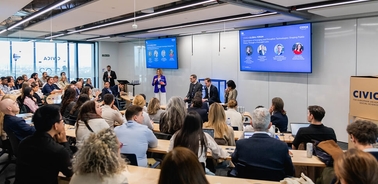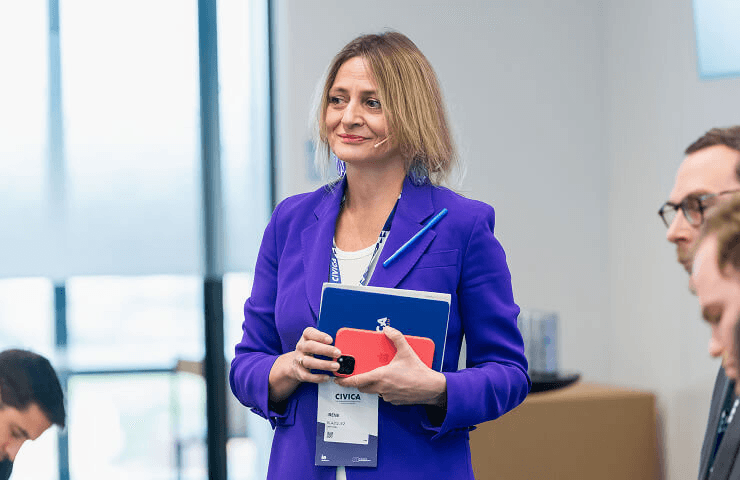- Home
- Civica
- Civica News
- Ie University’s Center For The Governance Of Change At The Civica Global Forum: Tech Governance Should Imply Sophisticated Innovation
IE University’s Center for the Governance of Change at the CIVICA Global Forum: Tech governance should imply sophisticated innovation

The Center for the Governance of Change at IE University calls for bold adoption of emerging tech at the flagship event of the CIVICA alliance.
The Center for the Governance of Change (CGC) at IE University led a session on tech governance through a foresight lens at the CIVICA Global Forum, held on May 6–7 at IE Tower, IE University’s vertical campus in Madrid.
Under the theme "Leveraging Social Sciences in Higher Education: Navigating Global Challenges and Complexities," the Forum gathered over 450 participants from academia, industry, government, and civil society to reflect on the transformative role of the social sciences in crafting sustainable solutions to some of the world’s most pressing challenges — poverty, inequality, the climate crisis, migration, geopolitical conflict, and technological disruption, among others.
By hosting the CIVICA Global Forum, IE University —together with the other nine European universities in the CIVICA alliance— reaffirmed its role as a key player in shaping the future of European higher education, consolidating its commitment to international collaboration, critical thinking, and the vital role of the social sciences in building Europe’s future.
Irene Blázquez, Director of the CGC, urged attendees to embrace innovation in a panel called "Governance of Emerging and Disruptive Technologies: Shaping Public Policy Through a Foresight Lens". Other speakers included Amy Zalman, former President of the World Future Society; Hector de Rivoire, Director of Public Policy at Microsoft’s Office of Responsible AI; and Stefan Haefliger, Professor of Digital Innovation and Strategy at the Stockholm School of Economics.
CGC Director Irene Blázquez emphasized the importance of proactively shaping the future rather than simply reacting to the ongoing transformations affecting higher education and society in general. She affirmed that "governance is a very sophisticated way of innovating" and concluded with a call to action: "We must focus on building the future we want through innovation," noting the CGC’s readiness to contribute to this aim.
Amy Zalman noted that foresight equips us with tools to govern technology — through the science of foresight (forecasting), the art of foresight (creativity), and the politics of foresight (governance). Hector de Rivoire highlighted the role of academia in providing an independent lens for deeply understanding AI risks, while underscoring the vital need for grounded, independent, and free research. Stefan Haefliger stated that higher education should harness AI in ways that challenge students and foster the development of their critical thinking skills.
